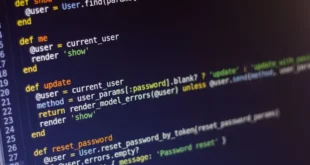Navigating the relationship between tenants and landlords can be complex. Both parties have rights and responsibilities. Tenants rent homes to live their lives. Landlords own the property and expect rent on time.
Problems arise when expectations are not met on either side. Understanding the rules helps both sides. Cooperation and respect are key to a good tenant and landlord relationship.
This balance ensures happy living and investing. Clear communication can prevent misunderstandings. This blog post will help you understand the basics of tenant vs landlord roles.
- Breaking Down the Basics: Tenant vs Landlord Responsibilities
- The Domino Effect: Consequences of Unpaid Rent
- Landlord’s Toolbox: Legal Recourse and Rent Collection
- Tenant’s Corner: Exploring Options in Difficult Times
- Prevention First: Strategies for Avoiding Rent Delinquencies
- Finding the Middle Ground: Mediation in Tenant-Landlord Disputes
- Navigating the Future of Tenant vs Landlord Relationships
Breaking Down the Basics: Tenant vs Landlord Responsibilities
When it comes to renting, knowing who is responsible for what is key to preventing conflicts. This gets tricky, but here’s a simple breakdown.
Tenants are generally in charge of keeping the place clean and paying rent on time. They have to fix things they break and follow the lease rules.
Landlords own rental property and have to make sure it’s a safe place to live. They fix appliances, care for plumbing, and maintain the house’s heating and cooling systems.
Both sides must respect each other’s rights and the law. It’s like a team – one plays offense, the other defending, and both have to work together to win the game.
If tenants pay their rent and keep things tidy, and landlords keep the house in good shape, it’s usually smooth sailing. Clear communication is the best tool to avoid problems. Let’s keep it simple and fair, and everyone can stay happy.
The Domino Effect: Consequences of Unpaid Rent
Unpaid rent can start with a domino effect, with tough consequences for tenants and landlords. If the tenant is not paying rent, it can lead to eviction. That means having to move out and find a new home quickly.
It can also hurt their credit score, making it harder to rent again or buy a house in the future. Bad credit can even affect getting a job or a loan.
For landlords, unpaid rent means they lose money. This can stop them from handling their bills and keeping the property in shape. In turn, this can make the rental property less nice for everyone.
Landlords might also have to pay legal fees if they want to remove a tenant who doesn’t pay. This makes the issue bigger and can cause stress for both sides.
In simple terms, when rent goes unpaid, nobody wins. It’s much better to talk things out and find a solution before problems grow. Clear deals and knowing the rules can help stop the domino effect before it starts.
Landlord’s Toolbox: Legal Recourse and Rent Collection
Landlords need the right tools to manage rent collection and legal issues. This part of their toolbox is crucial. When tenants don’t pay rent, landlords can take certain steps.
They can send a formal letter asking for the rent. It’s called a ‘pay or quit’ notice. This tells tenants to pay up or move out.
If this doesn’t work, landlords can go to court. They can take legal action to get rent or evict a tenant. Going to court may cost money and time, but it is sometimes needed to solve the problem.
For rent collection, it helps to make it easier for tenants to pay. Landlords can use online systems for tenants to pay rent.
Plus, it keeps records of payments. Keeping track of rent payments is key.
Landlords also have to follow the law, always. They should be fair to tenants and use the legal system rightly. This is the best way to keep things smooth and professional.
Tenant’s Corner: Exploring Options in Difficult Times
When tenants face hard times, knowing there are options is important. If you can’t pay rent, talk to your landlord right away.
Be honest about what’s going on. Sometimes, they might let you pay late or work out a plan, they don’t want to lose a good tenant.
Also, look into government programs for help. Many places have aid for people struggling to pay rent. This can help give you time to get back on your feet.
Joining a tenant’s association can also be a smart move. These groups give you support and advice. They help you know your rights and can help you talk to your landlord.
Remember to keep all communication with your landlord in writing. This protects you and your landlord. It’s good to have a record of what you’ve talked about.
In tough times, act quickly. Use the options you have to keep the lines of communication open. This can make a big difference and help prevent bigger issues with your home.
Prevention First: Strategies for Avoiding Rent Delinquencies
Proactive strategies are essential for both tenants and landlords to prevent the issue of unpaid rent. Tenants should plan a budget that prioritizes rent and create an emergency fund to cover unexpected financial setbacks.
Landlords, on the other hand, can perform thorough background and credit checks before signing new tenants to ensure reliability. Regular property check-ins and open lines of communication can also help identify issues early on.
Both parties can benefit from understanding local laws and regulations, preparing for the worst, and working towards a harmonious business relationship.
Finding the Middle Ground: Mediation in Tenant-Landlord Disputes
When disputes arise, mediation can serve as a cost-effective alternative to litigation. It involves an impartial third party who helps both tenant and landlord discuss their issues and navigate towards a mutually agreeable solution.
This process encourages cooperation and can maintain the tenant-landlord relationship, which court battles might otherwise damage. It’s often quicker, less formal, and can preserve goodwill, to find a resolution that respects the rights and needs of both parties involved.
Navigating the Future of Tenant vs Landlord Relationships
In the evolving landscape of tenant vs landlord relationships, the future holds potential for harmony when both parties engage with transparency and cooperation. Fostering this partnership is crucial to creating win-win outcomes. Adapting to new laws, leveraging technology for better communication, and respecting each other’s roles can help mitigate conflicts.
With a foundation of mutual respect and clear lease agreements, tenant vs landlord interactions can transition from opposing forces to a unified, respectful alliance that stands the test of time.
Did you find this article helpful? Then visit more of our blogs!
 SlushWeb Live the Way You Love
SlushWeb Live the Way You Love



